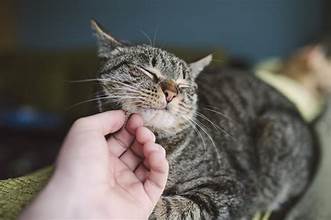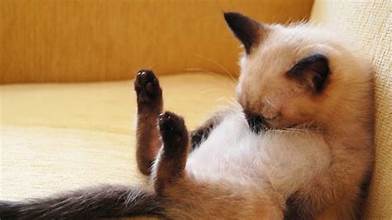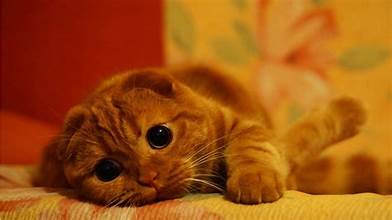Cats are fascinating creatures with complex behaviors. One of their most endearing habits is purring. This low-frequency vibration, often accompanied by a gentle rumble, is a common form of feline communication. But what exactly does it mean when a cat purrs? Let’s explore the science behind this delightful sound.
The Mechanics of Purring
- Purring is a complex behavior that uses multiple muscles and organs. When a cat purrs, it contracts muscles in its larynx, chest, and diaphragm, creating a vibration that can act as a purr. While the exact mechanism is still being examined, purring is believed to serve several purposes for cats.
Why Do Cats Purr?
The exact reasons why cats purr are still being evaluated, but there have been advancements
- Comfort and Contentment:
- Cats often purr when relaxed, happy, or feeling safe, which can signify that they enjoy your company, a warm spot, or a good meal.
- Purring can also be a way for cats to self-soothe and reduce stress.
- Social Bonding:
- Purring is a form of communication between cats and human companions. It can be a way for cats to express affection and build trust.
- Kittens often purr while nursing to bond with their mother, and this behavior can carry over into adulthood.
- Healing and Recovery:
- Studies have shown that the act of a cat’s purr can have therapeutic benefits. The vibrations are believed to help promote healing and reduce pain.
- Cats inform you let you know that they are sick or injured to aid in their recovery.
- Attention-Seeking:
- Sometimes, cats may purr to get your attention. They might be trying to ask for food, play, or simply a cuddle.
- Self-Soothing: Purring is believed to have a calming effect on the cat. The vibration may help reduce stress and anxiety, promoting relaxation.

When Do Cats Purr?
Cats may purr in various situations, including:
- Being petted or groomed: Cats often purr when petted or groomed, as this indicates their enjoyment of attention.
- Playing: Purring can be a sign of excitement and enjoyment during playtime.
- Napping: Cats often purr while napping, suggesting a state of contentment and relaxation.
- When they are anxious or stressed: Surprisingly, cats may also purr to self-soothe.

Conclusion
Purring is a complex and fascinating behavior in cats. While the exact reasons for purring may vary, this sound plays a significant role in feline communication and well-being. Understanding the meaning behind a cat’s purr can help us better connect with our feline companions and appreciate the beauty of their unique language.




